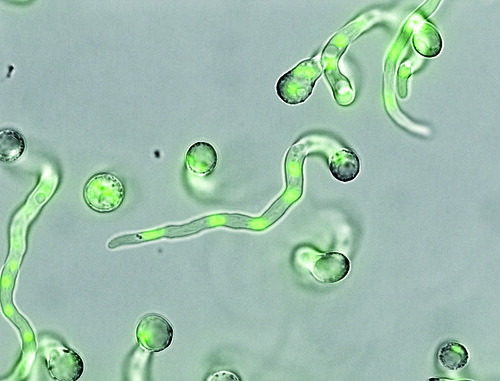May 13, 2011
Published online ahead of print May 4, 2011 in Genome Research, a team led by Scott Baker of the Pacific Northwest National Laboratory compared the genome sequences of two Aspergillus niger strains to, among other things, better harness its industrial potential in biofuels applications. As more than a million tons of citric acid are produced annually, the production process involving A. niger is a well understood fungal fermentation process that could inform the development of a biorefinery where organic compounds replace the chemical building blocks normally derived from petroleum. Learning more about the genetic bases of the behaviors and abilities of these two industrially relevant fungal strains, wrote senior author Baker and his colleagues in the paper, will allow researchers to exploit their genomes towards the more efficient production of organic acids and other compounds, including biofuels.
To read more click here...

0 comments:
Post a Comment